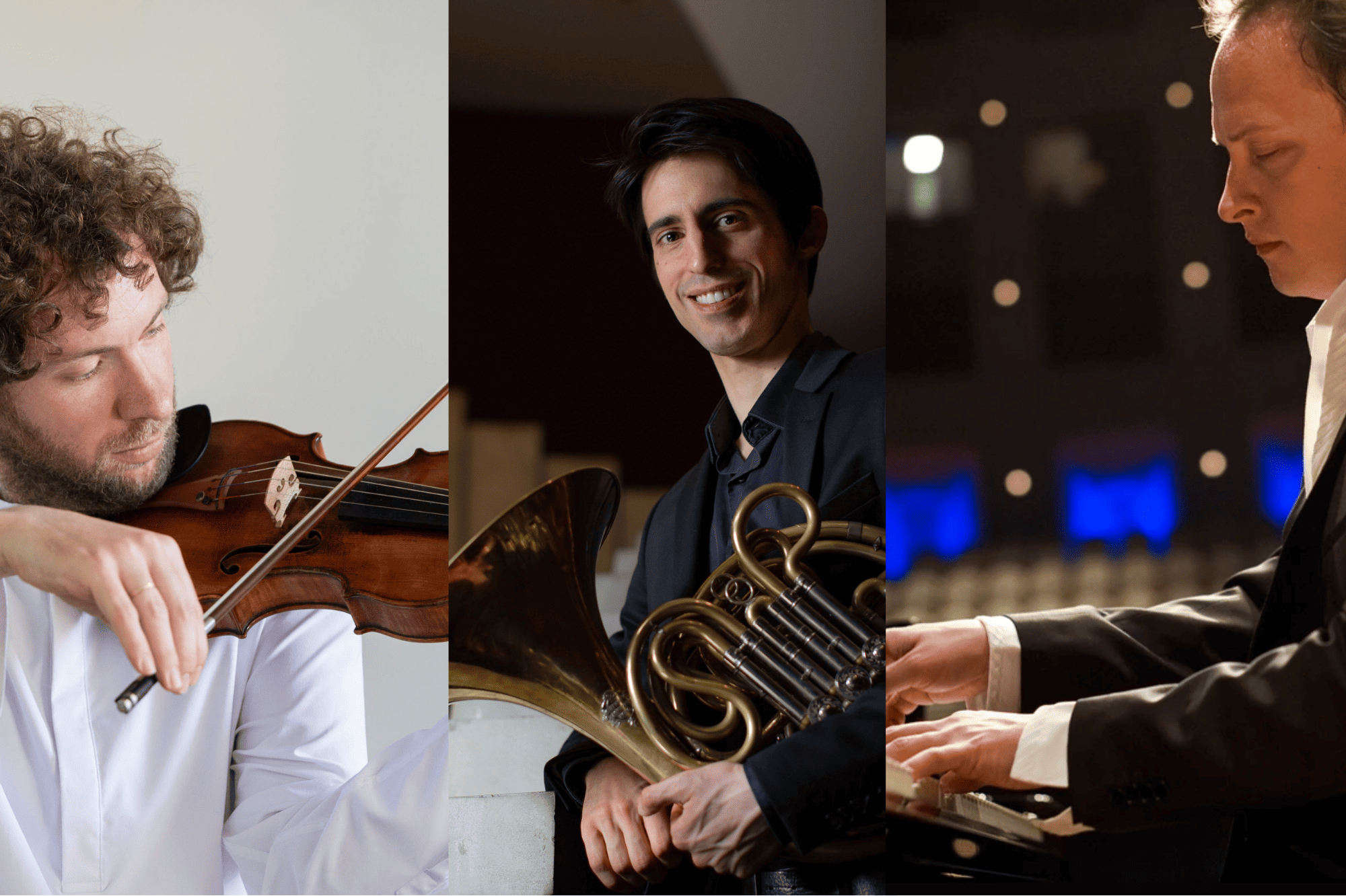
Guillaume Tétu, Pierre Fouchenneret & Romain Descharmes
Concert
- Saturday, June 28, 7:00 PM
- Théâtre du Manège de Reims, Reims
Brahms' "The Horn" Trio
Guillaume Tétuhorn
Pierre Foucheneretviolin
Romain Descharmespiano
This concert spans several eras, echoing Christian Merlin's lecture that precedes it. Guillaume Tétu begins with a magnificently decorated natural horn (without valves), typical of Parisian hornmaking in the 1820s, to play the sonata Beethoven wrote in one night for the Czech virtuoso Jan (Johann) Stich - or rather Giovanni Punto, as he called himself to escape the vindictiveness of his employer, whom he had fled to pursue a career more in line with his aspirations.
Guillaume Tétu takes up his modern horn for Messiaen'sAppel interstellaire. Included in the vast orchestral fresco Des canyons aux étoiles (1974), composed for the bicentenary of American independence, this piece, which pushes the limits of horn playing, takes up the score Messiaen had written in 1971 as part of a Tombeau for Jean-Pierre Guézec, shocked by the sudden and premature death of this former pupil. Two biblical quotations illuminate the meaning of these cries of existential despair that bounce off the sidereal immensity until they are lost in the silence of infinity.
Pierre Fouchenneret borrows from the oboists the delightful Romances given by Schumann to his wife, Clara Wieck, as a Christmas present. They crown a particularly fruitful 1849, a pivotal year in which Schumann abandoned traditional forms - trio, quartet, quintet - and Italian-language indications in favor of shorter, freer forms, delving into the German Romantic imagination.
Guillaume Tétu once again chooses the modern horn for Brahms's trio, even though the composer intended the work for the more mysterious timbre of the natural horn. Brahms is said to have written this score as a tribute to his mother, who died in February 1865. A friend of the composer, Albert Dietrich, tells us, however, that the inspiration for the initial theme came to him when he saw a ray of sunlight filtering through the majestic fir trees of the Black Forest. More generally, the entire German Romantic imagination is summoned here, the horn evoking the mythical ancestral Germanic forest - the Urwald, the Myrkviðr of the Nordic sagas. The finale sounds like a fantastic hunter's ride.
Practical info